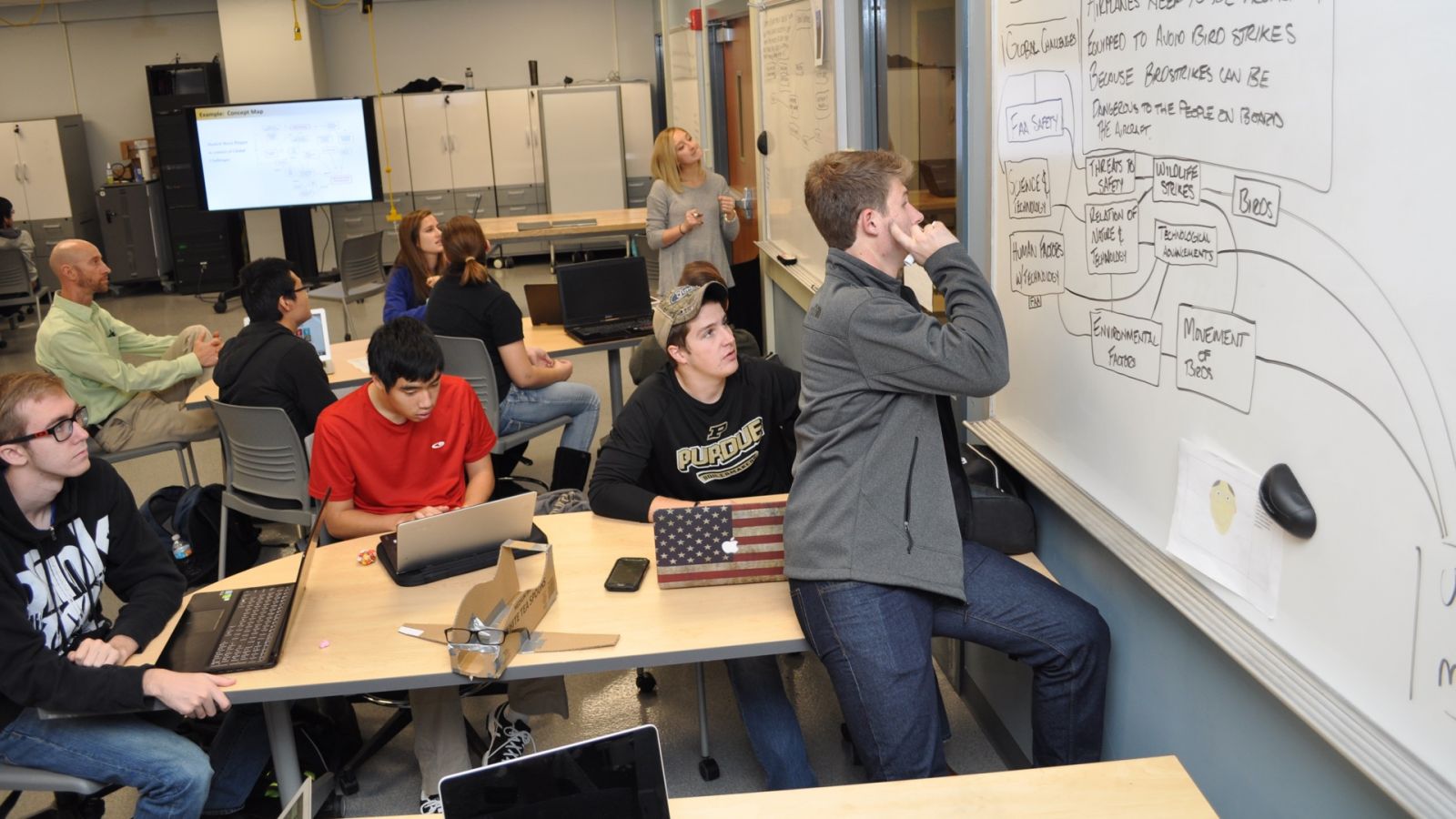
Students in TECH 12000 (Design Thinking in Technology) will present a public showcase of their semester projects from 2–3 p.m. on Thursday, December 7, 2017, in Knoy Hall of Technology rooms B016 and B019. The campus community, parents and friends are invited to meet students in the course and explore their work. Snacks will be provided.
At the culmination of the course, the first of the core courses for Polytechnic majors, students apply design thinking strategies to demonstrate their abilities to:
- Write a narrowly focused problem statement
- Apply ethnographic methods to understand technological problems
- Develop a search strategy, access technical databases and evaluate results and source quality
- Create a technical report documenting results of the design process
- Manage design projects, develop project timelines and negotiate individual responsibilities and accountability in the team environment
- Apply strategies of ideation to develop novel and innovative solutions
- Rapidly prototype solutions for purposes of design, testing and communication
Approximately 550 students were divided into 125 teams. The teams focused on short-term projects as well as society’s grand challenges in half-semester projects to apply design thinking to locally relevant problems.
The challenges position students as designers to identify an opportunity and apply a design process to propose a solution. The presentation sessions are the outcomes of the process and the mechanism through which they share their ideas.
“We designed this course with a unique pedagogy,” said Nathan Mentzer, associate professor of engineering/technology teacher education. “Because active learning is a Polytechnic hallmark, we want new students to experience our learn-by-doing classroom environments as quickly as possible.”
Class sessions, held two hours per week, are used as lab time for collaboration and application of concepts. Traditional lecture content is delivered online via Blackboard, Purdue’s system for course documents, assignments and assessments.
“We call this a ‘flipped class’ because instructors use class meetings to help students work on projects rather than passively listen to lectures,” Mentzer said. “It’s a dynamic way to help students build on their capacity for innovative thinking.”
The course design also allows for small course sections of a few dozen students each, Mentzer said, with enough sections scheduled to accommodate approximately 1000 students per year.
A selected sample of 12 presentations will be on display at the December 7 showcase.
